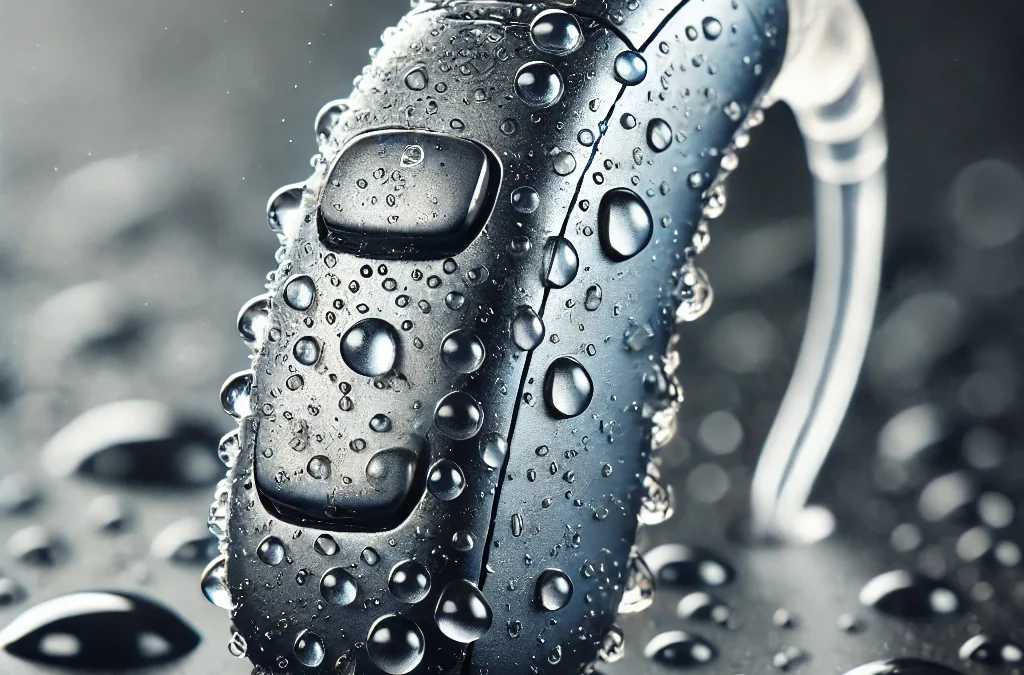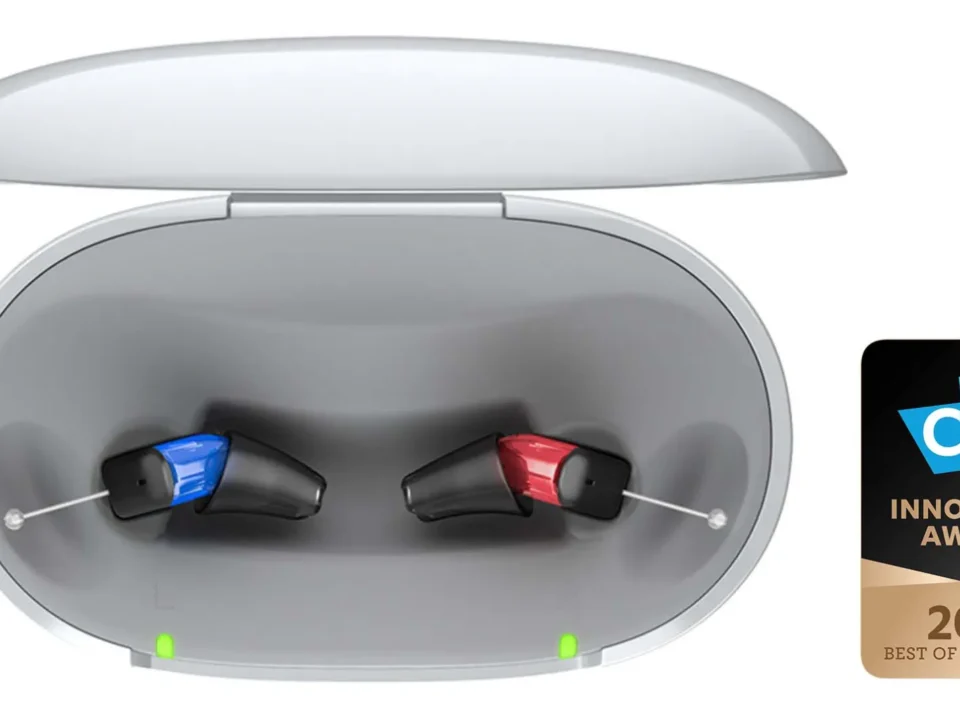
Is Noise-Induced Hearing Loss (NIHL) Permanent or Temporary?
October 22, 2024
Tinnitus and Hearing Loss During Perimenopause and Menopause
October 22, 2024Are you looking for a hearing aid that can withstand exposure to water, whether it’s rain, sweat, or even swimming? Waterproof hearing aids are designed to handle these situations, providing greater convenience and dependability in various conditions. These devices help reduce the risk of damage caused by moisture or dust, making them a good option for those with active lifestyles. But how waterproof are they, really?
Waterproof vs. Water-Resistant Hearing Aids
It’s important to note that most hearing aids are not entirely waterproof but rather water-resistant. This distinction means that while they can resist some moisture levels, they are not designed to be fully submerged for extended periods, such as swimming or diving. To measure the level of protection a device offers, hearing aids are assigned an Ingress Protection (IP) rating. The higher the IP rating, the more resistant the device is to water and dust.
Understanding the IP Rating
When choosing a water-resistant hearing aid, it’s essential to understand its IP rating. The IP rating consists of two digits: the first relates to protection against solid particles like dust, and the second refers to water resistance. A higher second digit means the hearing aid can withstand more water exposure. For example, a hearing aid with an IP68 rating is one of the most water-resistant models available. The “6” indicates that the device is protected against dust, while the “8” suggests it can withstand submersion in water up to a certain depth and for a limited time (usually up to 1.5 meters for 30 minutes). While this level of protection is quite robust, the device is designed for something other than regular swimming or water sports. While this sounds reassuring, even the most water-resistant hearing aids are not invulnerable. Prolonged exposure to water or submersion beyond their rating can lead to damage. Most hearing professionals recommend removing hearing aids before swimming or showering.
The Importance of Water-Resistant Hearing Aids
Water-resistant hearing aids are a practical choice for anyone frequently exposed to moisture. Whether you live in a humid environment, sweat heavily during exercise, or are caught in a rain shower, having a water-resistant hearing aid can give you peace of mind. These devices are designed to endure everyday challenges such as perspiration and brief water exposure without needing immediate repairs or replacements.
For people with an active lifestyle, waterproof or water-resistant hearing aids help avoid damage that could lead to costly repairs or time spent without their device. They also offer the convenience of enjoying activities like running, hiking, or working outdoors without the constant worry of water exposure.
Waterproof Solutions for Active Lifestyles
If you frequently engage in water-based activities, consider waterproof hearing aids or protective accessories designed to safeguard your device. Waterproof hearing aids provide an extra level of security for environments where moisture exposure is inevitable. However, if you’re not ready to invest in a waterproof model, other options exist, such as protective covers or sleeves. These can add a layer of protection and are easy to use during specific activities, ensuring your hearing aids stay dry and functional.
What To Do if Your Hearing Aids Get Wet
Accidents happen, and your hearing aids might get wet despite your best efforts. If this occurs, the most important step is to dry them as quickly as possible. Use a soft, absorbent towel to gently pat the device dry—avoid rubbing, as this may push water further into the device. If the hearing aids have a wax guard, remove it and use gentle air pressure to blow any excess moisture out.
For best results, place your hearing aids in a hearing aid dryer or dehumidifier overnight. These specialised devices help draw out moisture and thoroughly dry your hearing aids. In the morning, check for any signs of water damage, such as corrosion or malfunctioning components. If you’re still experiencing issues, you are always welcome to contact us at The Audiology Place for a more thorough inspection and possible repairs.




